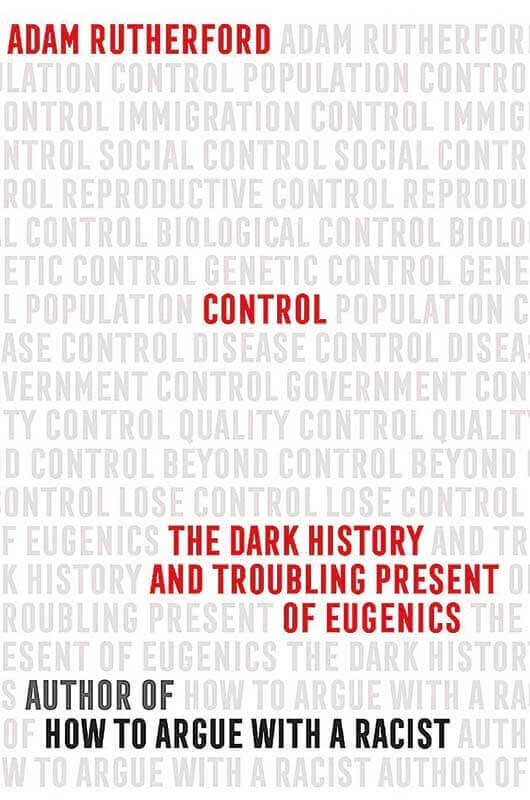
Katie Burton reviews Adam Rutherford’s new book, Control: The Dark History and Troubling Present of Eugenics, published by W&N
Adam Rutherford’s latest book is split in half. Part one is a fairly straightforward history of the eugenics movement, taking in pioneers in the USA and adopters in Nazi Germany. There’s much to be appalled at, not least the startling extent of the USA’s sterilisation policies which saw 70,000 people sterilized from 1907 until the period after WWII (even then it didn’t come to an end). It’s almost a relief to get to the end of this section and leave behind the deranged minds on display.
Part two looks at eugenics today, or at least attempts to control the genetics of future individuals. As Rutherford says, because of huge accelerations in our understanding of genes and new tools to tinker with them, ‘we face similar debates to those that occurred a century ago,’ when eugenics was enjoying its heyday. Rutherford focuses less on the moral debate – if we could select embryos based on certain traits (high IQ for example) should we? Instead he does what he does best, and asks whether the science behind such attempts even stacks up.
It’s an important question because there are enough people out there who seem to think this type of selection is a good idea. But the answer is, overwhelmingly, no. ‘Our current understanding of genetics does not allow for control of even the supposedly simplest traits,’ says Rutherford, going on to explain why. In doing so, he builds a strong and compelling riposte to all those who would see us merrily tinker with human genes and human lives.




